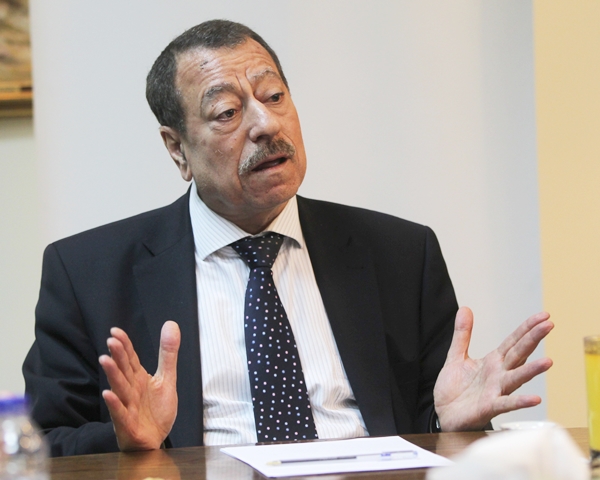After five years of futile attempts to topple the Syrian government, the United States is now grappling with new problems such as terrorism and the refugee crisis. The White House has now come to the conclusion that it should drop its insistence on the ouster of Bashar Assad and get along with Russia as far as the Syrian conflict is concerned.
With the refugee crisis getting closer to a boiling point, things are changing on the ground in Syria. Five years have passed since the Syrian crisis erupted. Now the West and certain Arab countries have lost hope in efforts to overthrow the Syrian government, and the US and Europe – more than Saudi Arabia and Turkey – have come to realize that they have to come to terms with a [new] Russian role in Syria and with the survival of Bashar Assad.
Fars News Agency on September 19 published a report on the Russian role in the Syrian civil war and the new US Syria strategy, quoting remarks by Abdel Bari Atwan, the editor-in-chief of Rai al-Youm – an Arab world digital news and opinion website – on the Syrian crisis and its twists and turns. The following is the translation of that report:
Abdel Bari Atwan writes [in his editorial] that US Secretary of State John Kerry dropped a political bombshell when he – in a joint press conference with United Arab Emirates Foreign Minister Abdullah bin Zayed in London on Friday – welcomed talks with Russia on the fight against ISIL in Syria. [“The president believes that mil-to-mil conversation is an important next step and hopefully will take place very shortly and help to define some of the different options available to us as we consider next steps in Syria”.]
Atwan goes on to say that the [US] acceptance of talks with Moscow on the Syrian conflict has given Russia the opportunity to station its state-of-the-art military hardware in Syria. Russia, which has announced Bashar Assad as its red line, is getting prepared to help him stay on the job.
He then puts forward a question as to what has caused the US to change tack and welcome cooperation with Russia on the Syrian issue, and sets out the following reasons for such a change of heart:
1. After conducting around 6,000 sorties against ISIL positions, Washington has learned that it has achieved nothing [in its fight against ISIL]: not only has the terror group not retreated from its positions, but it has also captured Ramadi in Iraq and Palmyra in Syria.
2. Saudi Arabia, Turkey and Qatar – all three US allies – are opposed to deployment of ground troops to take on ISIL. Forces of the Iraqi Army have withdrawn from Ramadi and Mosul, Saudi Arabia has got embroiled in a bloody war against Yemen, and Turkey has been caught in a war of attrition against PKK [Kurdistan Workers’ Party].
3. All plans to train the Syrian opposition have ended in failure and the trainees have fled the conflict before taking one single shot at ISIL.
4. Expression of readiness by Moscow to send troops to Syria – if and when Syria asks for them – means that Russia is seriously committed to helping Bashar Assad survive even if it takes a third world war.
5. Following the conclusion of a nuclear deal with Iran and its passage at Congress, the United States is ready to implement a phased-out departure from the Middle East simply toward [pursuing its policies on] East Asia, especially at a time when it is close to becoming independent of the Middle East’s oil.
6. The exodus of thousands of Syrian refugees who are fleeing the crisis [in their homeland] toward Europe has left an impact on the [green] continent and sparked off a demographic crisis there. Europe has been divided into two parts: Germany, France, Britain and Belgium vis-à-vis the New Europe which comprises Poland, Hungary, Romania and Bulgaria. There are fears that the European Union can be splintered.
Abdel Bari Atwan continues to say that the reasons above are good enough to say that the US administration has handed over the Syrian case to Russia and is trying to devolve its responsibilities toward the Syrian opposition and its supporters (Saudi Arabia, Qatar and Turkey).
He adds nothing happens in Europe and the US by chance. Spanish Foreign Minister Jose Manuel Garcia-Margallo’s insistence (1) on the need for holding talks with Bashar Assad and remarks by British Foreign Secretary Philip Hammond (2) on the presence of Bashar Assad in the transitional period together with comments by German Chancellor Angela Merkel (3) on Moscow’s role in Syria have all aimed to [prepare the world public opinion and] set the stage for the US withdrawal from Syria.
Close military talks between Russia and the US will soon create a US-Russian coalition for the fight against ISIL. This will be the first time ever that two world powers agree to take on one single enemy. The Syrian government or Iran seems likely to be part of this coalition. The new coalition will possibly inflict the most painful losses on Saudi Arabia, Turkey and Qatar – three sides of a triangle.
2. [“If there is a sensible plan for transition that involves Assad remaining in some way involved in the process for a period of time we will look at that, we will discuss it. We are not saying he must go on day one”.]
3. [Germany and other western European powers need to work with Russia as well as the United States to solve the crisis in Syria]
